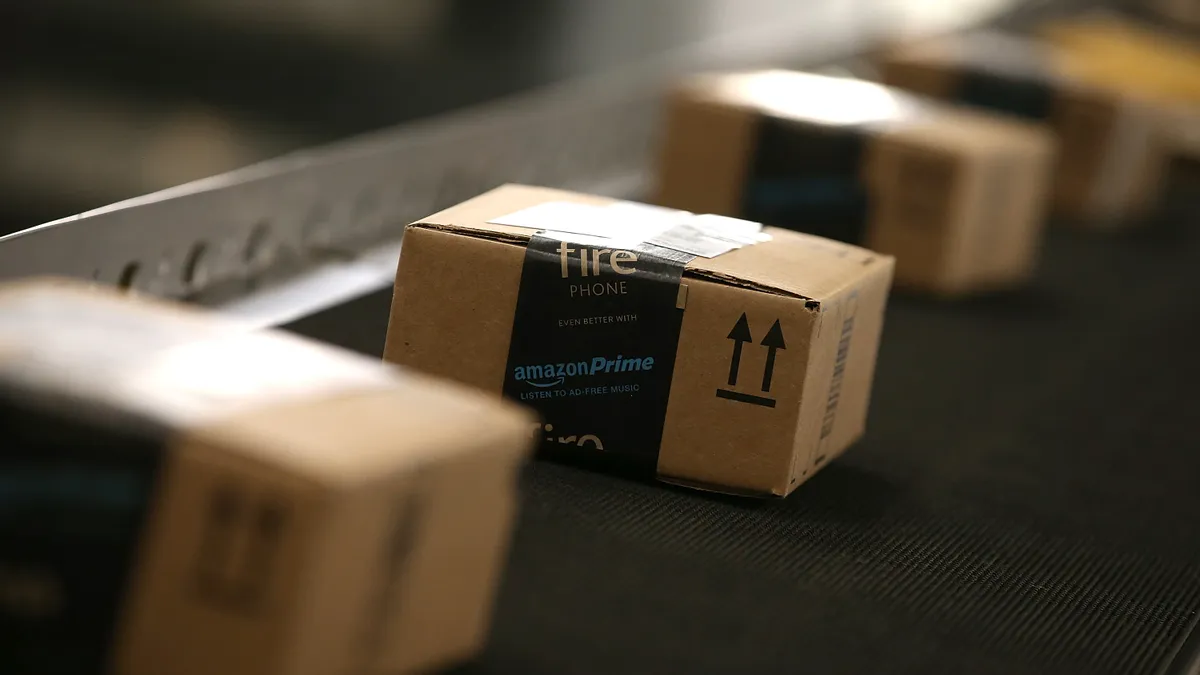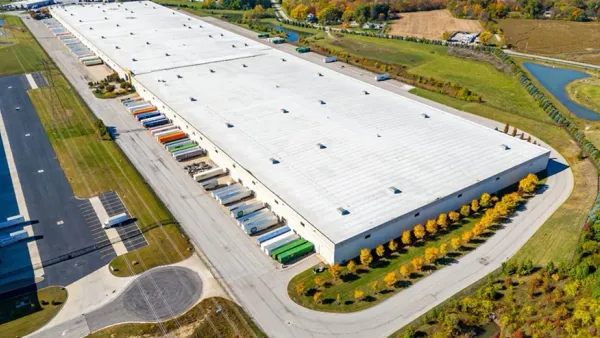Dive Brief:
- Amazon and Wayfair might need to raise prices to offset the cost of tariff hikes on Chinese goods, according to estimates by Bank of America in a research note emailed to Supply Chain Dive.
- The bank estimates Amazon could have to raise its prices by 2.1% to 2.6% while Wayfair could bump up prices by 4.6% to fully offset the 15% tariff that went into effect this past Sunday.
- The analysts expect Wayfair and Amazon will begin to increase sourcing from suppliers based outside of China, which could reduce the impact of tariffs on end consumers, the note explains.
Dive Insight:
Bank of America estimates 20% of the cost of goods sold by Amazon first-party sellers are imported from China, while this figure is about 25% for third-party sellers. The bank estimates Wayfair's China sourcing could be 50% to 60% of the cost of goods sold for "some home goods [and] furniture categories."
The analysts expect Amazon will still keep its share of the e-commerce marketplace — or even continue to expand — thanks to its ability to find items of similar price from outside of China. Still, the bank expects Amazon's costs to increase $2.6 billion as a result of the new tariffs. First-party sellers would need to increase costs by 2.1% to offset this and third-party sellers would have to go up 2.6%, analysts estimate.
The bank outlined three potential options for the Wayfair marketplace, which are the three common options retailers have been exploring as the trade war has unfolded:
- Suppliers could absorb the cost.
- Manufacturers could look at alternative sourcing outside of China.
- Suppliers can pass the cost along in the form of higher prices on the Wayfair marketplace.
The bank estimates a $453 million potential tariff impact at Wayfair. Wayfair CEO Niraj Shah outlined similar options on the company's most recent earnings call on Aug. 1. Shah acknowledged the tariffs create a more volatile environment for the business.
"Our business model is more resilient than that of a traditional retailer by being a platform," he said of tariffs. "We have suppliers who will win, suppliers who will lose, suppliers who will choose to run lower margin and take shares, suppliers who will choose not to do that."
The question of how to handle tariffs has been an ongoing debate for retailers as tariffs have given them an extra cost to consider. Recently, Target told its suppliers to aborsb additional costs, so the retailer wouldn't "have to pass price increases along to our guests," Target Executive Vice President and Chief Merchandising Officer Mark Tritton said in a memo to suppliers.
Others have allowed the price increases to hit the sales floor. Discount stores have framed the increases as new offerings. Five Below tested a $5.55 price point and a $10 Below! while Dollar Tree added "Dollar Tree Plus" for its more expensive items.















